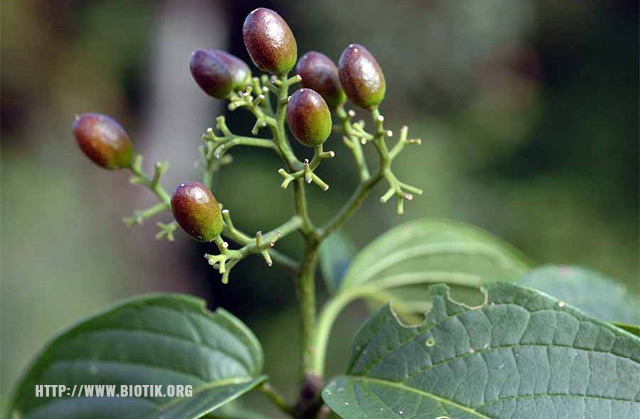Colloidal silver made with ghanera extract has anticancer and antimicrobial potential – study
05/22/2019 / By Evangelyn Rodriguez

Ghanera (Nothapodytes nimmoniana) is a small flowering tree found in India. It bears oblong fruits which are purplish when ripe and contain only single seeds. Ghanera is known as a rich source of camptothecin (CPT), a topoisomerase inhibitor that can potentially treat ovarian and small lung cancers. Recently, researchers from Bharathidasan University in India discovered another application for ghanera: Its fruit extract can be used as a capping agent in the biosynthesis of nanoparticles that have strong anticancer and antimicrobial activities.
Why nanoparticles?
Nanoparticles have long been studied due to their potential in drug delivery. Researchers prefer to use them because they can be engineered to suit a specific purpose; for instance, they can target only diseased cells to allow for direct therapy. Nanoparticles, when used as vehicles, also reduce the damage done to healthy cells in the body because they can be more specific. They are also useful in medical diagnosis as they allow for the early detection of diseases.
Metal nanoparticles, on the other hand, are good stabilizing agents in the synthesis of nanoparticles because of their electrical, optical, chemical, and mechanical properties. In this study, published in the journal Food Science and Human Wellness, the researchers synthesized silver nanoparticles (AgNPs) and used a liquid extract from ripe ghanera fruit as capping agent. Capping agents are often used in the synthesis of colloids to stop overgrowth and control the structural characteristics of nanoparticles.
The researchers characterized the AgNPs they produced using UV analysis and x-ray diffraction. They used scanning electron microscopy to confirm that the AgNPs had a spherical shape and that the particles differed in size.

AgNPs made with ghanera fruit extracts can defend against bacteria and kill cancer cells
The researchers compared the ghanera fruit extract and the AgNPs in terms of phenolics, tannins, and flavonoid content. As they expected, the fruit extract had higher amounts of each compound than the AgNPs. It also exhibited better antioxidant activity, proving that the ghanera fruit is rich in phytochemicals that can fight oxidative stress.
In terms of antimicrobial activity, AgNPs proved to be more potent against Bacillus subtilis, Pseudomonas aeruginosa, Klebsiella pneumoniae, Staphylococcus aureus, and Escherichia coli. B. subtilis causes gastrointestinal tract infection in humans while P. aeruginosa, K. pneumoniae, and S. aureus cause respiratory tract infections. E. coli is part of the normal human gut microflora, but some strains can cause urinary tract infections, abdominal cramps, anemia, and even kidney failure.
The researchers found the AgNPs with smaller particle sizes to be more effective against bacteria due to their large surface areas. Having large surface areas, they explained, meant that there was more space for interacting with bacteria. They also proposed that AgNPs kill bacteria by attaching to their cell surface and disrupting their permeability and respiration. AgNPs may also have the ability to penetrate inside bacterial cells.
When researchers tested the cytotoxicity of both ghanera extract and AgNPs on HeLa cells, they found that AgNPs can inhibit the proliferation of that cancer cell line. They observed that cell viability decreased as they increased the concentration of AgNPs, suggesting that AgNPs have strong anticancer potential. (Related: Rhubarb can destroy cancer cells.)
Based on their findings, the researchers concluded that AgNPs synthesized using ghanera fruit extract can be a promising candidate for biomedical applications due to their potent antimicrobial and anticancer activities.
Sources include:
Submit a correction >>
Tagged Under:
alternative medicine, anticancer, Antimicrobial, antioxidant, bacteria, bacterial infection, biomedical application, cancer, disease treatments, ghanera fruit, nanoparticles, natural cures, natural medicine, Nothapodytes nimmoniana (Graham) Mabb., research, silver nanoparticles
This article may contain statements that reflect the opinion of the author




















